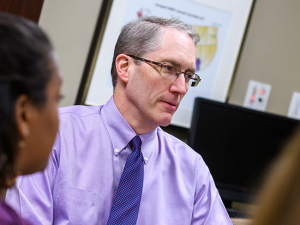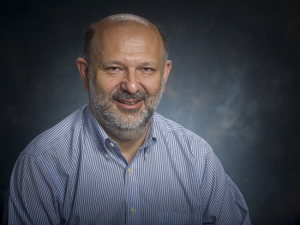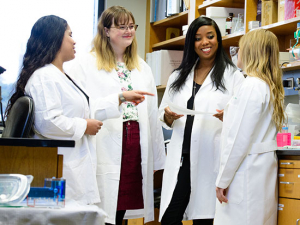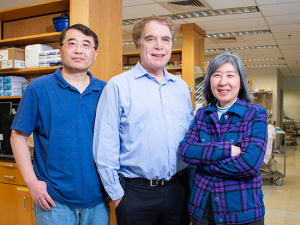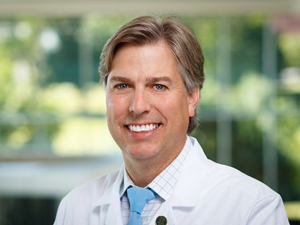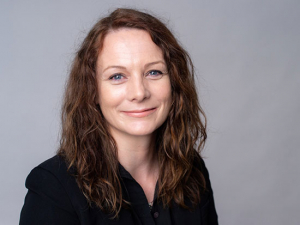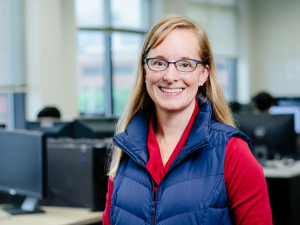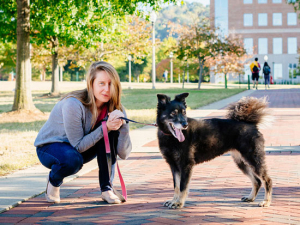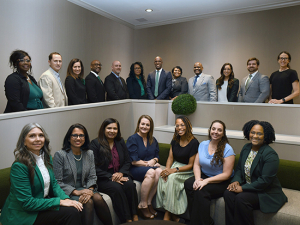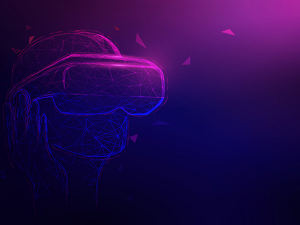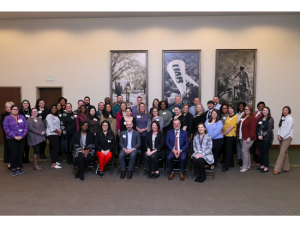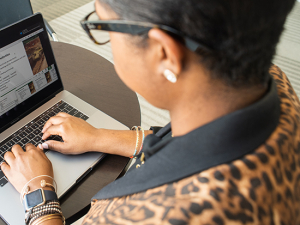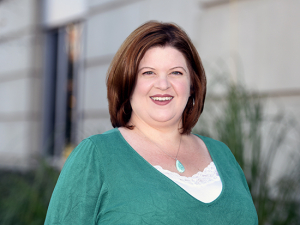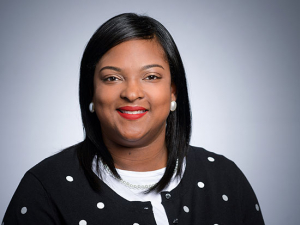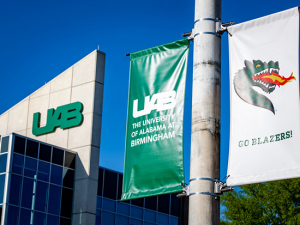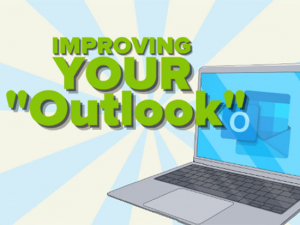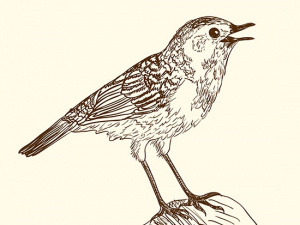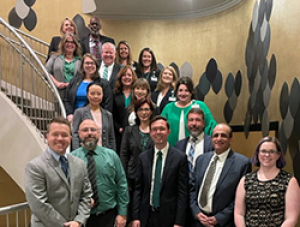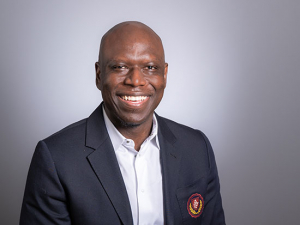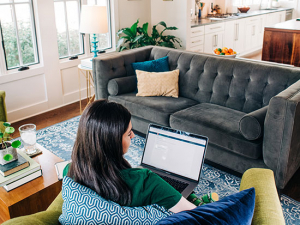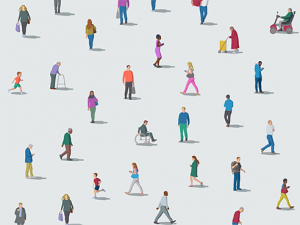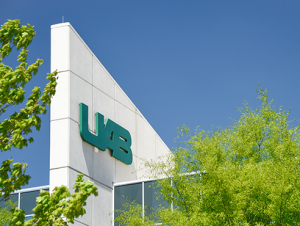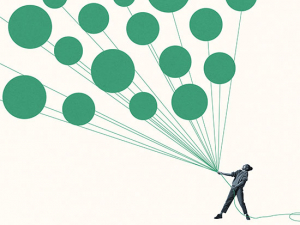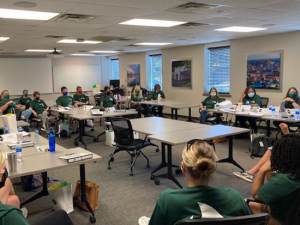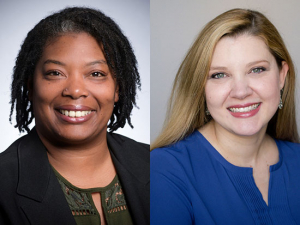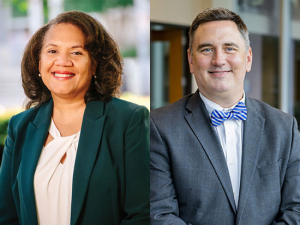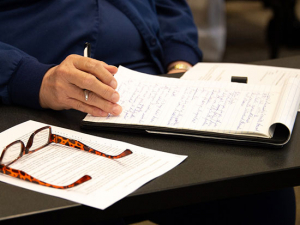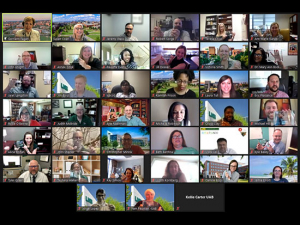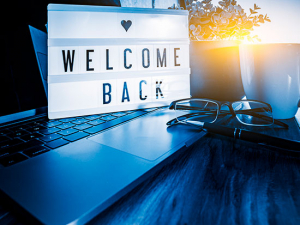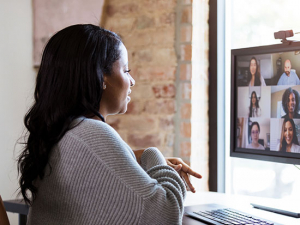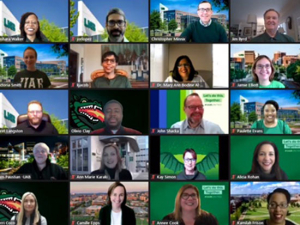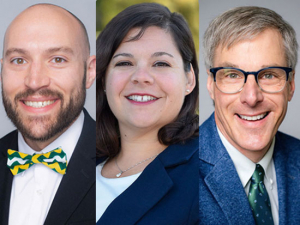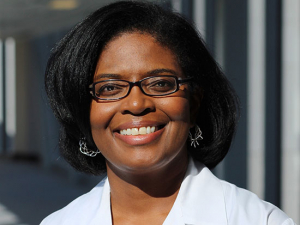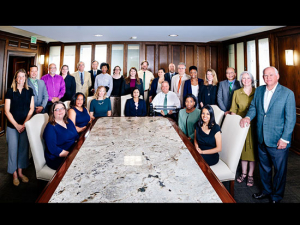
Matt Windsor
| This email address is being protected from spambots. You need JavaScript enabled to view it.Gilbert to deliver the Distinguished Faculty Lecture
Gregg Gilbert, DDS, whose landmark oral health research connected practicing dentists with university investigators and earned the largest federal grant in UAB history, will receive the highest honor of the Academic Health Center.
Headlines won’t help you lose weight. Try these experiments instead.
Internal and external forces are pushing us all to expand our waistlines. But you can overcome them by making smart choices that work in your life, says UAB health behavior expert Kathryn Kaiser, Ph.D. Here’s how.
About that new sign at the Kaul Building…
Do you speak APT1A3? To help patients with mysterious conditions, these precision pioneers are seeking expertise in targeted genes.
Maligned brain cells get an overdue closeup in Parpura’s 'Neuroglia'
New textbook by neurobiology professor, the first of its kind, details emerging role in Alzheimer’s, Parkinson’s, autism spectrum disorder and more.
UAB neurobiologist Farah Lubin, Ph.D., went against type to go to college, change the paradigm on how memories are made and make science more welcoming for under-represented students.
Symphony for a single cell: sequencing and time travel at UAB
Single-cell sequencing enables researchers to study disease as never before — even skipping through time to follow crucial populations. UAB experts explain what all the fuss is about and how to get started in single-cell research — a field that is wide open for discovery.
The Precision Diagnostics Laboratory effort, led by Craig Mackinnon, M.D., Ph.D., will support surgeons, oncologists and other clinicians with the latest tests and custom assays, starting with gene panels for cancer and drug metabolism that return answers in hours, not weeks.
Open source: How data scientist Liz Worthey is bringing precision medicine to the people
A decade ago, Liz Worthey’s computational skills saved a life and earned her a profile in a Pulitzer-winning article. Now at UAB, this new recruit is creating tools and building collaborations to transform these extraordinary efforts into a routine part of patient care.
Students are shutting down the worst of the web in this UAB lab
A social worker turned social media detective is the latest success story from UAB’s cyber security programs, in which students can get paid to outwit romance scammers, terrorists, bank thieves and more.
Biology postdoc Jessica Hoffman earns a career-launching NIH K99/R00 award with her intriguing research into size and lifespan in dogs and other species.
